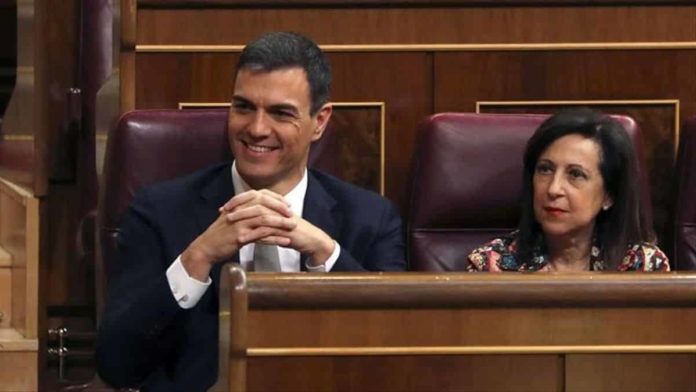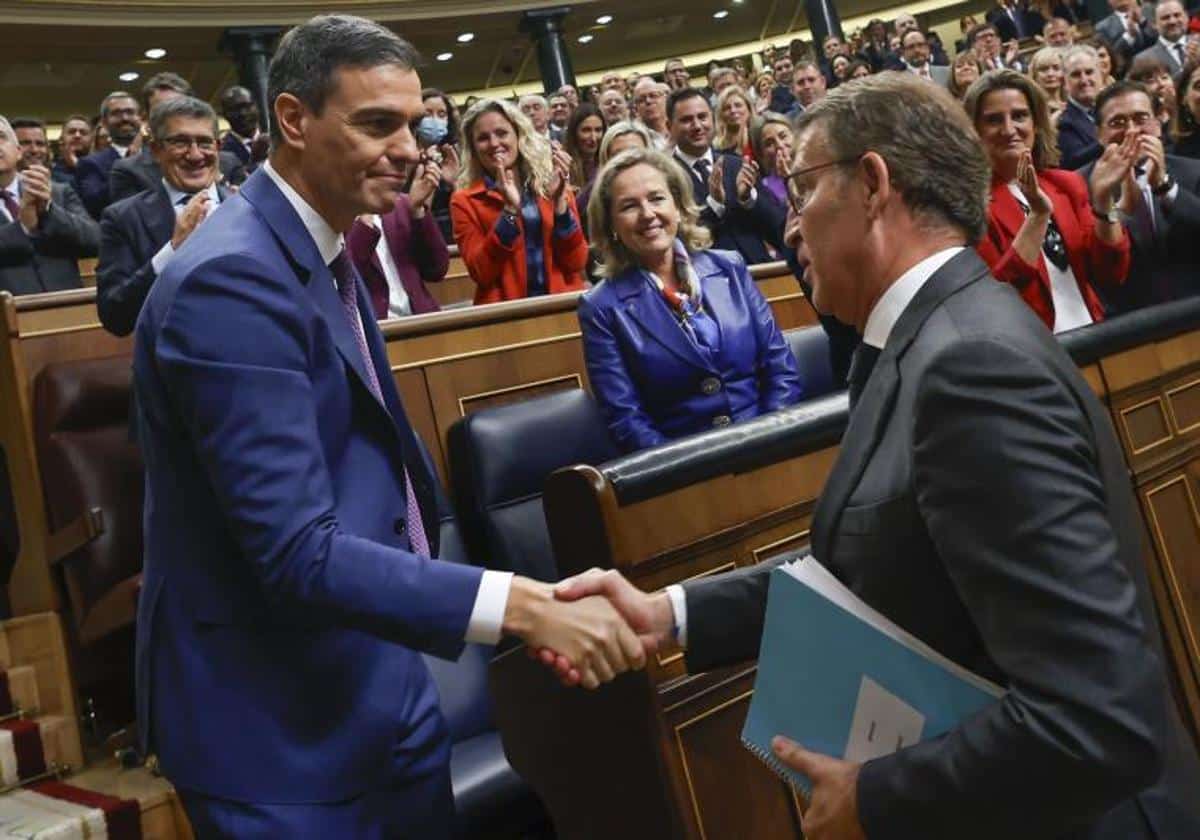
Pedro Sánchez has been re-elected president of the Government four months after the national elections.
While the PSOE leader begins his third term as head of the Spanish Executive he does do in controversial circumstances by garnering the support of Sumar, ERC, Junts, PNV, BNG and the Canary Coalition, a total pf 176 yeses, a figure higher than that achieved in 2020. However in order to form the coalition he has committed himself to the introduction of an amnesty law for the Catalan independentists, which has caused massive protests in the streets across the nation.
On Wednesday, the absolute majority that Sanchez had been forging for months was in danger. Late in the afternoon, Junts threatened to abstain from Thursday’s vote and extend the investiture for another 48 hours, until Saturday. Finally, however, the post-convergents decided to keep their word and invest Sánchez.
The rest of the coalition partners have done the same, however, the tension of these recent days and the complexity of reaching agreements suggests a legislature that is full of complicated agreements.
Proof of this has been the warnings to Sánchez from a large number of his partners, the most forceful being those of ERC and Junts. “Don’t risk it, believe me,” the Republican spokesman, Gabriel Rufián, told him from the rostrum. “With us, don’t try to tempt your luck,” her post-convergent counterpart, Miriam Nogueras, later added. The PNV has warned him that the powers and what has already been agreed must be respected; and EH Bildu, say that they will be vigilant against any attempt by the PSOE to look to the right.

Sánchez has celebrated his re-election as president with the support of PSOE (121), Sumar (31), ERC (7), Junts (7), EH Bildu (6), PNV (5), BNG (1) and Canarian Coalition (1). The 179 total yeses obtained place the current leader of the PSOE above those achieved by Felipe González in 1989, José Luis Rodríguez Zapatero in 2008 and Mariano Rajoy in 2016. In addition, he maintains the record of being the head of a government that has the support of a greater number of political forces.
After gaining the support of the Lower House for Sánchez, it will now be the turn of the president of Congress, Francina Armengol, to go to the Zarzuela palace to inform King Felipe VI. In the coming days, the leader of the PSOE must then promise his position to the monarch and inform of the names that will make up his Cabinet, something that, predictably, will happen over this weekend.




